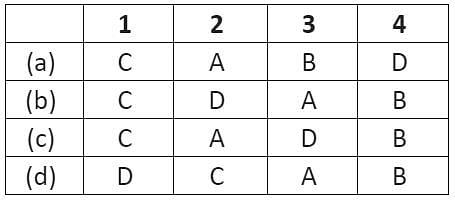Test: Political Parties - 1 - Class 10 MCQ
20 Questions MCQ Test Social Studies (SST) Class 10 - Test: Political Parties - 1
How have recent legislative changes in the country addressed the issue of defection in politics?
What is the significance of political parties in a democracy ?
| 1 Crore+ students have signed up on EduRev. Have you? Download the App |
What is a better way of carrying out political reforms in a democratic country?
The political party which beliefs in Marxism-Leninism is __________________.
What key concept underlies the foundation of the Bharatiya Janata Party (BJP)?
Why do political parties play a crucial role in modern democracies?
What is one of the key measures implemented by the Supreme Court to reduce the influence of money and criminals in elections?
Match List I (organisations and struggles) with List-II, and select the correct answer using the codes given below the list:


Why did political parties become so omnipresent in democracies all over the world?
What is the primary purpose of political parties in a democracy?
Why is internal democracy within political parties considered a significant challenge in the functioning of democracy?
How do opposition parties contribute to the political landscape in a democracy?
Assertion: India has evolved a multiparty system.
Reason: It is because the social and geographical diversity in such a large country is not easily absorbed by two or even three parties.
What is the primary function of political parties in a democratic system?
What is the primary ideology underpinning the formation of the Aam Aadmi Party (AAP) in India?
What trend has been observed regarding the level of trust in political parties in India?
What term is used to describe a system where several parties compete for power, with more than two parties having a reasonable chance of coming to power either on their own strength or in alliance with others?
|
64 videos|445 docs|87 tests
|
|
64 videos|445 docs|87 tests
|












